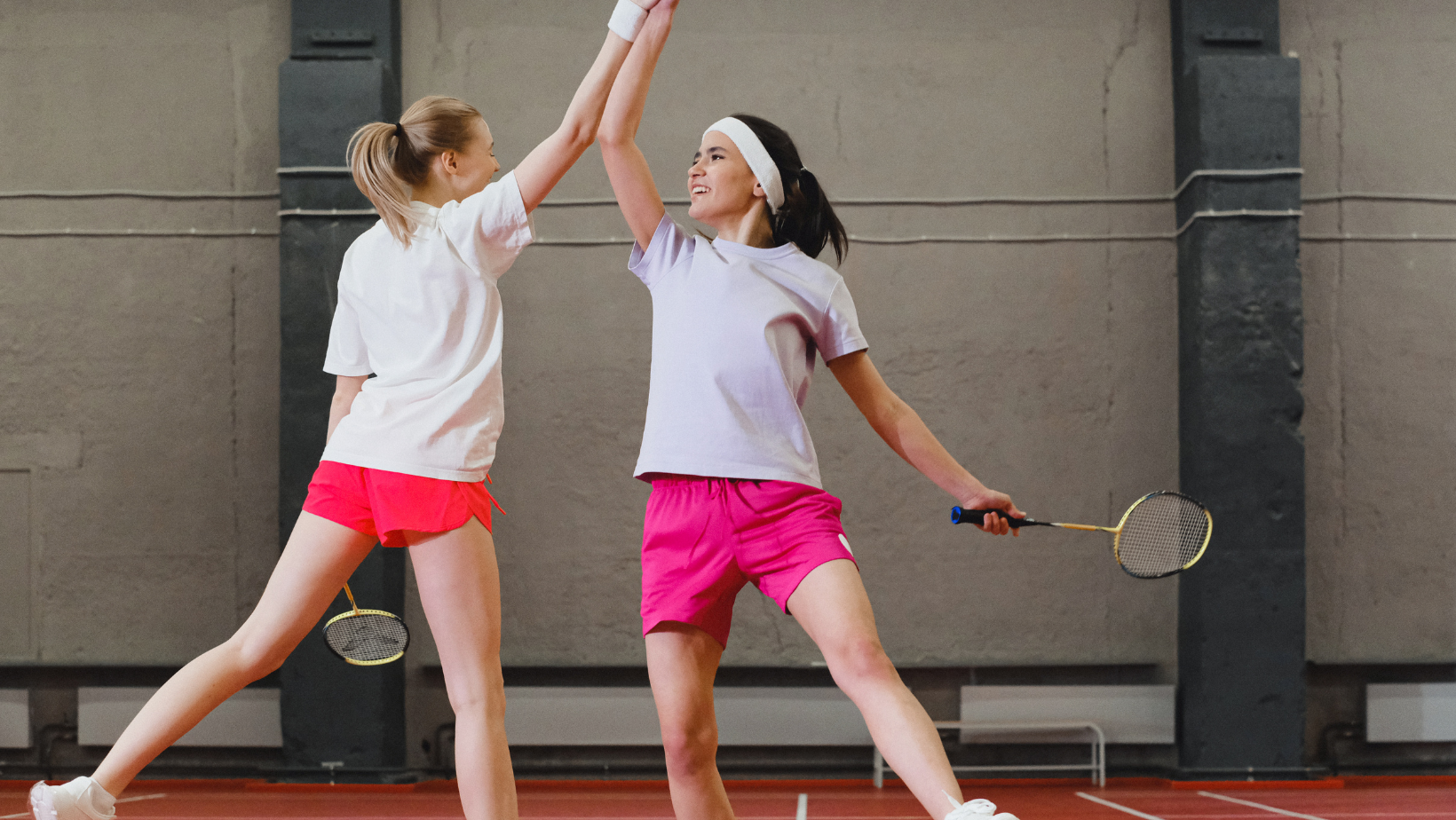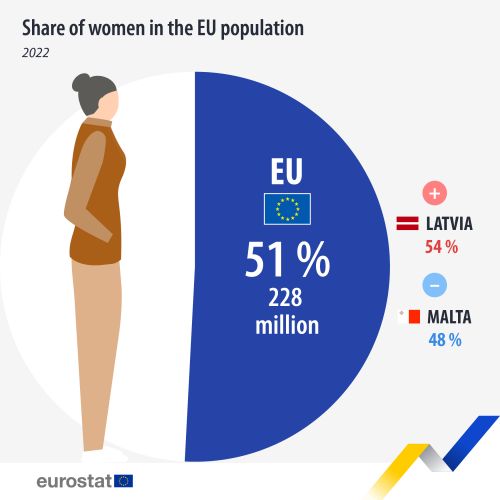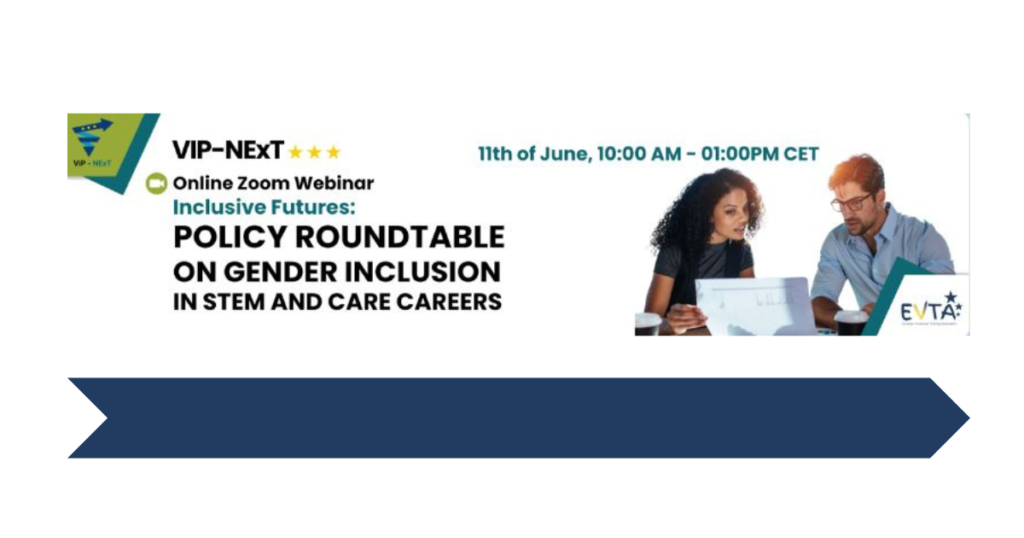Gender inequalities in professional sports have been a persistent and long-standing issue. For decades female soccer players have been subjected to inferior treatment compared to their male counterparts, including significantly lower pay and limited public interest and support. Not only are there many notable disparities between the male and female players but also in high-level leadership positions. Evans and Pfister (2021) noted that there is overwhelming evidence of a gendered and unequal balance of power between men and women in sports governance and many men and women are aware of these issues. Despite discussions about gender equity among male board members in sports governance, actual affirmative action to address the issue is often limited. This is referred to as ‘gender passivity,‘ which means accepting the current gendered practices, representation, and recruitment policies without questioning or taking active steps to promote gender equity.
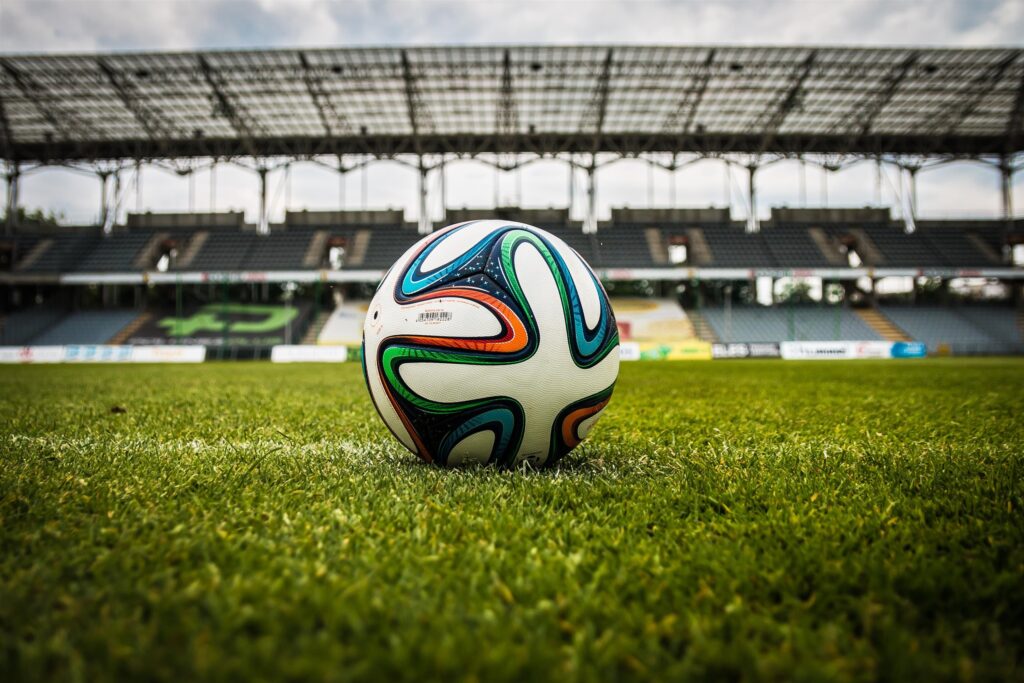
This year FIFA President Gianni Infantino said in March that the association was embarking on a “historic journey for women’s football and for equality,” adding that the aim was equality in payments for the men’s and women’s World Cups in 2026 and 2027 respectively. Adding to the theme of gender equality a promotional video posted by the French team has gone viral. The video cleverly employs AI to showcase the French men’s soccer team performing at their peak, only to unveil that the footage is, in fact, from the French women’s soccer team. By doing so, the video challenges the common assumption that the perceived lower interest in women’s soccer is solely due to the players’ inferior technical skills or abilities.
A recent experiment (Gomez-Gonzalez et., 2023) conducted by the university of Zurich highlighted the very issues alluded to in the ad produced by advertising agency Marcel. Participants were shown videos of elite female and male soccer players. In one group, the gender of the players was concealed with blurring, and in the other, it was not. When the players’ gender was hidden, there was no significant difference in the ratings for women’s and men’s videos. However, when participants knew the players’ gender, men’s videos were rated higher. Such biases can contribute to an overall lack of recognition, support, and resources for female athletes, inhibiting the growth and development of women’s soccer as a whole.
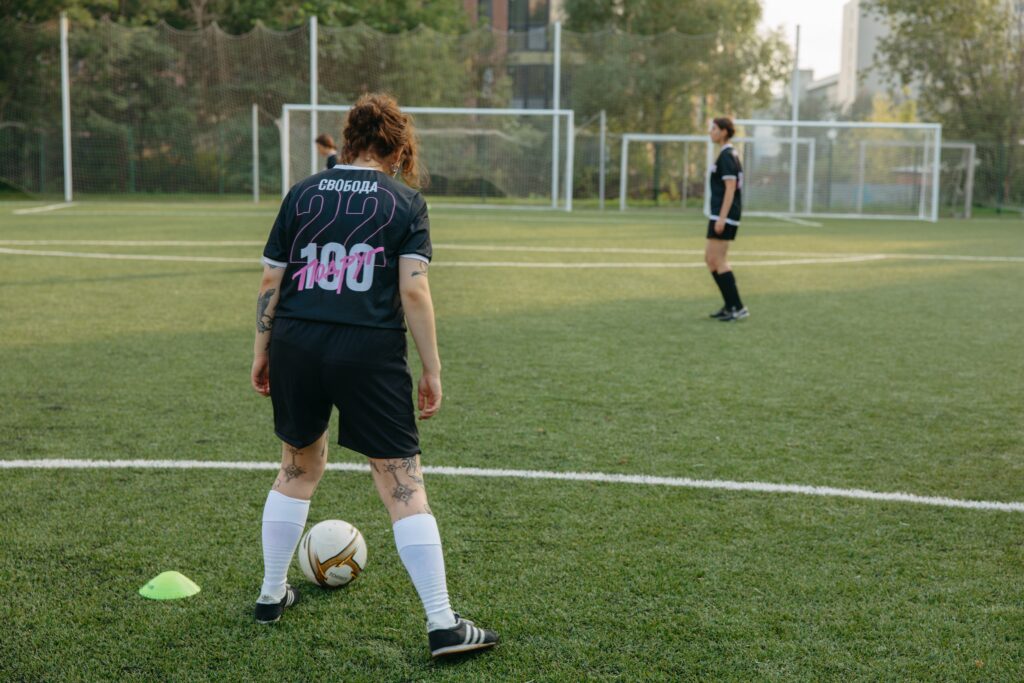
Unfortunately, the issue of gender bias and stereotypes is not limited to the soccer industry but extends to various other sectors and industries. In many areas of society, there are deeply ingrained gendered stereotypes that perpetuate the notion that women are less skilled, competent, and capable compared with their male counterparts. For example, in business leadership positions, women may encounter the “glass ceiling” phenomenon, where they face barriers in reaching top-level positions due to gender bias. In Ireland the latest figures reveal only three in 36 CEOs across Irish listed companies are women, having fallen from 11.1 % to 8.3 % in March this year (Balance for Better Business Review Group, 2023).
Efforts to address gender disparities in these sectors are crucial, and some positive steps have been seen, such as FIFA’s commitment to achieving equality in payments for the men’s and women’s World Cups in the coming years. The viral video of the French women’s soccer team, which challenges assumptions about women’s abilities, showcases the importance of opposing gender biases and stereotypes in promoting women’s sports. However, it is clear that much work remains to be done to dismantle ingrained gendered stereotypes and biases that hinder women’s potential in various fields, including sports, business, and leadership. To achieve true gender equality, society must actively question and challenge current policies, practices, representation, and recruitment policies. Encouraging initiatives, promoting female leadership, and providing equal opportunities and resources for women are essential steps towards breaking down the barriers that persistently hinder women’s advancement in all areas of society.
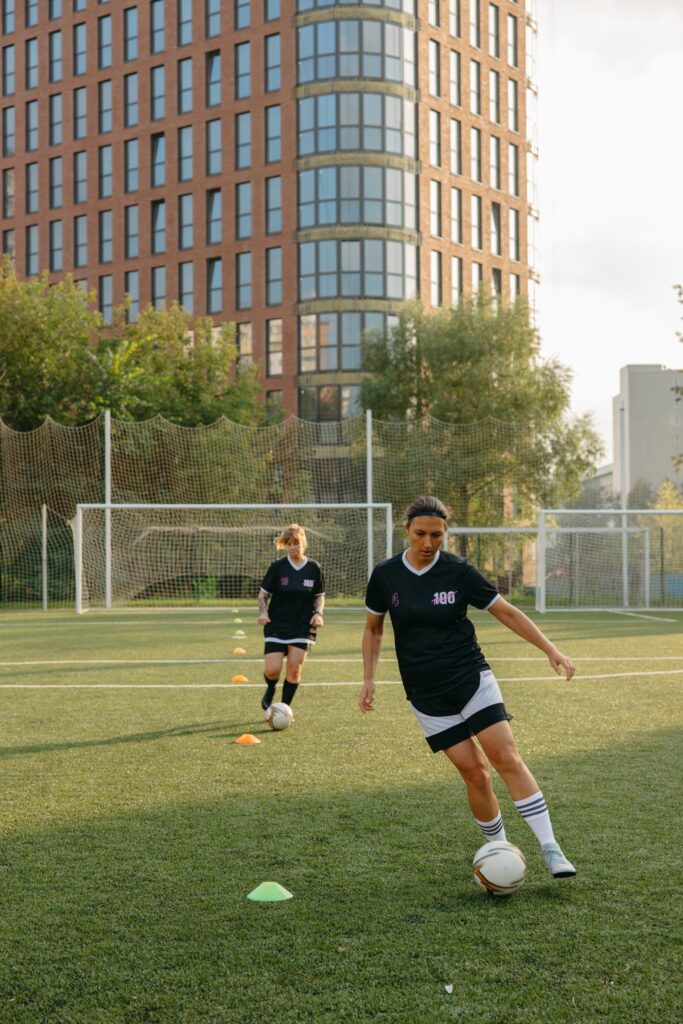
Evans, A.B. and Pfister, G.U., 2021. Women in sports leadership: A systematic narrative review. International review for the sociology of sport, 56(3), pp.317-342. Available at: https://journals.sagepub.com/doi/pdf/10.1177/1012690220911842?casa_token=mXCE8F3oAooAAAAA:NQokA6Z5jav3s3q-efvM53MyJEp5kuin1tPLhTzoEpEihD66KrStkPfY6xuYKpJ8mVcoAkTDn0yzlA
Gomez-Gonzalez, C., Dietl, H., Berri, D. and Nesseler, C., 2023. Gender information and perceived quality: An experiment with professional soccer performance. Sport Management Review, pp.1-22. Available at: https://www.tandfonline.com/doi/pdf/10.1080/14413523.2023.2233341?casa_token=-B1OhHcFR6MAAAAA:MFb3W0yQkwkCTSDwj1JDqCEty_kLuCVd1iPzhIEQ02BhPtFAAouJRWD-_tUORX8CeOBGbI7DjUpBOA
Orange – la Compil des Bleues (English version), 2023. Available at: https://www.youtube.com/watch?v=QVNZRHIZVL8&abchannel=Marcel
PH credits: pexels and www.pexels.com/it-it/cerca/anastasia%20shuraeva/

